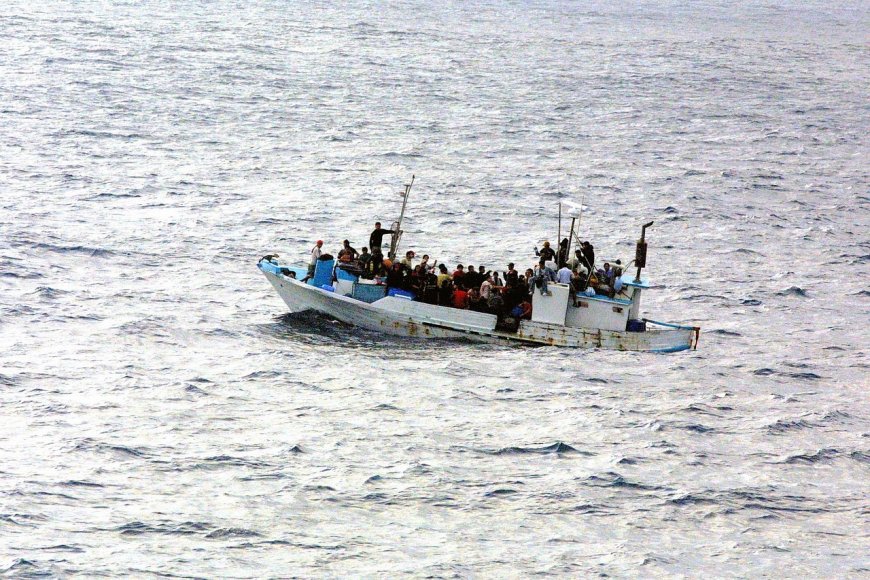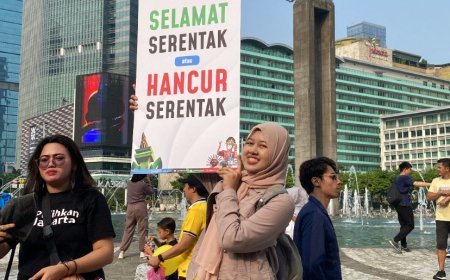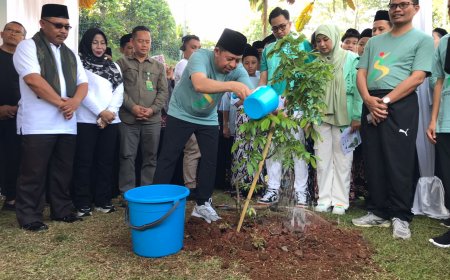RICD launched to anticipate millions of climate refugees in Indonesia
RICD is a tool designed to respond to climate-induced refugees.

MOSAIC-INDONESIA.COM, JAKARTA -- The International Organization for Migration (IOM) in cooperation with the European Union and the Government of Indonesia launched the Climate Displacement Risk Index (RICD) initiative in Jakarta, Wednesday (16/10/2024).
RICD is a tool designed to provide operational foresight to anticipate, mitigate, and respond to climate-induced displacement. Various stakeholders, such as the National Agency for Disaster Management (BNPB) and leading research institutions such as the University of Indonesia (UI), the National Research and Innovation Agency (BRIN), collaborated in this initiative.
Using co-creation methodologies, RICD leverages diverse expertise to build a comprehensive data model aimed at enhancing Indonesia's capacity to predict, mitigate and respond to refugee risks caused by climate change.
“All partners contribute their expertise in a collaborative effort to develop comprehensive solutions to climate-induced displacement. This collective engagement is important to strengthen our ability to anticipate, mitigate, and respond effectively to these challenges, which can ultimately reduce the impact on vulnerable populations,” Jeffrey Labovitz, IOM Indonesia's Head of Mission, said in a statement.

By 2023, there were 12.6 million internally displaced persons in Asia Pacific due to disasters, representing 41 percent of total IDPs globally. The number of refugees is predicted to rise to 48.4 million people in East Asia and the Pacific by 2050. They will be displaced due to slowly occurring hazards, most of which are related to environmental changes. In the face of such growing trends, reliable data and evidence are essential to minimize displacement and associated risks.
RICD will support informed policy-making and will guide operational responses to enhance resilience as well as protect vulnerable communities.
“The EU is proud to support this initiative, which brings together partners to address the growing threat of population displacement due to climate change. By leveraging collective expertise, this project will strengthen our ability to predict and reduce the risk of population displacement, ensuring that people in Indonesia are better prepared and protected in the face of climate change,” said Janez Lenarčič, European Commissioner for Crisis Management.
RICD operates on two levels to provide a comprehensive understanding of displacement dynamics. RICD examines the factors driving displacement, including fundamental factors such as economic, political, cultural, and demographic conditions that create conditions for climate-related migration.
RICD also focuses on displacement triggers—direct catalysts that force people to leave their homes, such as loss of livelihoods, food or water insecurity, or loss of habitable land.
In details, the index also identifies a tipping point, which is a critical threshold at which the cumulative impacts of climate change become severe enough to significantly increase the likelihood of displacement.
“This initiative is critical for Indonesia, in line with our national priorities in disaster preparedness, risk reduction, and climate resilience. RICD will provide the data and insights needed to better anticipate and respond to climate-induced displacement, strengthen our preparedness, and protect vulnerable communities,” said Dr. Abdul Muhari, S.Si., M.T., Head of Data, Information, and Communication Center, BNPB
In the next few months, all project partners will work together to develop data models, starting with a national-level macro analysis of refugee risk. This collaborative effort will then move on to the implementation of micro-level assessments at key locations, which provide targeted insights for policy formulation and operational response across Indonesia.







